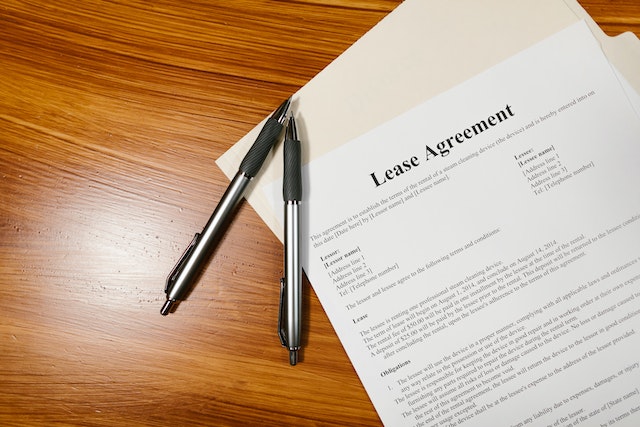
Distinct Buyer Personalities: Identifying the Committed Buyer

Just as each individual has a unique personality, every buyer varies in their mindset, emotional composition, and approach towards business. Buyers choose to purchase businesses for a myriad of reasons. Hence, the onus is on business brokers and M&A advisors to identify committed buyers to avoid wasting valuable time. In this article, we delve into how we can discern the serious buyer from the crowd.
A committed buyer, one with the drive to succeed and not merely window shopping, would express keen interest in understanding both the prospective business and the overall industry. Imagine someone who is serious about winning a game – they would first strive to comprehend the rules before participating. Look for a buyer eager to discern the strengths and weaknesses of a business, as well as that of competitors. They should also be concerned about possible industry-wide challenges, both current and future.
Astute business individuals recognize that employee wages and salaries make up a significant portion of a business’s operational cost. A serious buyer will strive to understand not only the employee wages and salaries but also related costs. These include retirement expenses, training costs for new employees, the rate of employee turnover, and more. Discerning buyers look for stability in every facet of the business, including its employees.
You’d want to attract buyers who are beyond the phase of “considering buying” a business. Deal with buyers who have deliberated on the implications of buying a business thoroughly. A crucial aspect of this process, as basic as it may sound, is to fully comprehend what is being sold. For instance, serious buyers will delve deep to understand capital expenditures. They will also assess and evaluate machinery and equipment to determine what might need repair or replacement. Replacement and repair of equipment could translate into substantial costs. Therefore, you can anticipate quality buyers to evaluate all equipment meticulously.
Buyers who grasp what buying a business entails will even go beyond evaluating the stability of employees and the condition of machinery and equipment. You can expect a committed buyer to inquire about potential environmental issues, scrutinize the lease, and inspect the condition of all buildings. They will be interested in knowing who the critical clients and suppliers are and decide if those relationships are stable or if they pose long-term risks to the business.
Ultimately, the type of buyer you’ll want to collaborate with is proactive. Quality buyers will assess every aspect of a business to determine its long-term sustainability. A buyer who goes beyond merely “kicking the tires” is exactly the kind of buyer you want.
Read More
Deciphering Your Lease: Key Elements Business Owners Should Understand

Operating a business is no small feat, requiring attention to a multitude of details that are integral to its smooth functioning. One such critical detail that often goes unnoticed is understanding your lease agreement thoroughly. Particularly for businesses where location plays a pivotal role in success—restaurants, service businesses, retail stores, etc.—comprehensive knowledge of the lease is crucial. Ignoring this can lead to unfavorable consequences, even business failure.
Don’t Let Crucial Points Go Unnoticed
Regardless of the type of business you own, understanding every facet of your lease is essential. You might even need to engage an attorney to help dissect the finer details and interpret the implications. Neglecting this step can pose significant risks to your business.
Understanding the Tenure of Your Lease
The duration of your lease stands as one of the most important elements you need to grasp. Although the specifics may vary based on your situation, typically, the longer the lease, the better. Extended leases confer increased stability to your business operations.
Exit Provisions and Exclusivity Clauses
When negotiating a lease, ensure it includes an exit provision or clause, allowing you the option to terminate the lease if necessary. Just as a longer lease term offers greater flexibility, having an option to exit the lease provides additional security.
A lease isn’t a simple document, nor is your location a simple aspect of your business. If you’re securing a lease in a shopping center or strip mall, try to include an exclusivity clause in your agreement, ensuring you’re the only business of your type in the vicinity. The last thing you want is to have a competitor set up shop nearby.
Lease Transferability
Negotiating a lengthy lease and having an exit clause are critical, but so is the ability to transfer your lease. There may come a time when you need to sell your business, so it’s in your best interest to understand how and under what conditions you can transfer your lease to the new owner.
Before putting your business on the market, discuss the potential sale with your landlord to understand if the lease is transferable. While the landlord can’t prevent the sale of your business, they could hold you to a personal guarantee to maintain the lease for the remainder of the term. The new owner would then be left to negotiate the lease renewal.
Assignment of Responsibilities
Finally, understanding who is responsible for what—between you and the landlord—is another key factor to consider in your lease. If you are expected to shoulder responsibilities related to the property, those should be explicitly stated in the lease.
Running a business involves managing a multitude of variables, one of the most important being your business’s physical location. It’s crucial to understand your lease thoroughly and negotiate terms that are beneficial for you. When signing a new lease, strive to make it as favorable to your business as possible.
Read More
Prepared to Sell Your Business? Beware of These Buyer Red Flags

As you gear up to sell your business, it’s crucial to stay alert for potential warning signs that could potentially undermine the deal. Time is a critical resource during this process. Why negotiate with a buyer who lacks genuine interest or the requisite qualifications? Let’s explore some of the most significant buyer warning signs.
1. Inadequate Buyer Experience
For individual buyers, it’s essential to evaluate their experience in your industry. A prospective buyer unfamiliar with your business may initially seem enthused but could quickly back out after delving deeper into the industry.
Similarly, caution should be exercised with first-time buyers. If you’re negotiating with a novice, you should be assured that they comprehend the complexities of a business acquisition before investing substantial time in the deal. The process can be lengthy and convoluted, often deterring inexperienced buyers once they grasp what’s involved.
2. Non-disclosure of Financial Information
Equally crucial is partnering with a buyer transparent about their financials. If they deny you access to financial statements, you’ll be unable to ascertain their capacity to purchase your business.
3. Early Signs of Communication Problems
Another common warning sign is when a company expresses interest in acquiring your business, yet their key decision-makers are conspicuously absent from the communication process. Genuine interest from a prospective buyer usually involves engagement from a central figure, such as the President or CEO.
Guarding Your Interests
Maintaining consistency is critical when your business is on the market. A significant buyer witnessing dips in sales or product quality might reconsider a future deal. Consequently, it’s vital to protect your time by avoiding negotiations with unfit buyers or those lacking serious interest. Trust your instincts. If something feels “off” with a potential buyer, chances are it is.
Engaging a business broker or M&A advisor offers a significant degree of protection against potential pitfalls, allowing you to focus on maintaining your business’s success. These professionals meticulously screen buyers to ensure they are genuinely viable candidates, saving you time and energy during this pivotal period.
Read More
Why Delegating is Key When Selling Your Business: Let the Experts Handle the Heavy Lifting

Selling a business is not just about striking the right deal, it’s a process that involves multiple moving parts. It requires expertise in fields as diverse as finance, marketing, negotiation, and law. If you’re planning on selling your business, it’s important to ensure that you don’t stretch yourself thin by trying to manage everything. Instead, let professionals handle the heavy lifting so you can focus on maintaining the day-to-day operations of your business.
Maintain Business Continuity
As a seller, your primary focus should be on ensuring that your business continues to function seamlessly. Many sellers make the mistake of getting so caught up in the sale that they neglect their current operations, leading to a potential decrease in sales and earnings. This can be a red flag for potential buyers. It’s crucial to maintain standard operating hours, keep inventory levels steady, and keep the premises in top condition.
Lean on Business Brokers and M&A Advisors
Professional business brokers and M&A advisors play a significant role in managing the sales process from beginning to end. Their goal is to keep the process on track so you can continue to run your business without distraction. Other professionals, like attorneys and CPAs, can also be instrumental in helping you navigate the legal and financial aspects of the sale.
Get Professional Pricing Guidance
Having a clear idea of your business’s worth and your expected earnings from the sale is important. However, the ultimate selling price is determined by what the market is willing to pay. Thus, getting a professional business valuation before setting your price can prevent overpricing, which could potentially slow down the process or even discourage buyers altogether.
Prioritize Confidentiality
Until your sales transaction is finalized, maintaining the highest level of confidentiality is paramount. If vendors or employees learn that you’re selling, it may create uncertainty that can harm the value of your business. Key employees might start seeking other employment opportunities, or vendors might decide to end contracts, impacting your business operations.
Strategize Your Role Post-Sale
One of the decisions you need to make is whether you’re open to staying on in a limited capacity after the sale. Many buyers are willing to pay more if the seller agrees to stay on for a specified period, as it lowers their perceived risk. Similarly, offering seller financing can increase your selling price, as it shows your confidence in the future success of the business.
Plan Ahead
The best time to prepare for selling your business is when there are no external pressures forcing you to sell. Preparing well in advance, by organizing documents, addressing any litigation or environmental issues, and cleaning up paperwork, can streamline the sales process when the time comes.
In conclusion, selling a business is a complex process that requires careful planning and execution. By entrusting professionals with the heavy lifting and focusing on maintaining business operations, you can ensure a smooth transition and get the best possible outcome from the sale. Engaging a business broker or M&A advisor well in advance can provide you with invaluable insights and support throughout the process.
Read More
Key Findings from the Recent BizBuySell Insight Report: A Brief Analysis

Whether you’re considering buying or selling a business, it’s beneficial to examine the BizBuySell quarterly reports. These documents, collated from approximately 50,000 businesses across the U.S., provide insights into sales and listing prices, successful transactions, and prevailing trends that could potentially impact your business decisions.
Prosperous Times for Sellers
The most recent BizBuySell report covering Q4 2021 indicated a flourishing market for sellers, with sales figures surpassing pre-pandemic levels seen in Q4 2019. This marked a significant rebound from the 2020 sales slump. Despite the usual fourth-quarter sales dip, 74% of brokers reported steady sales, a trend that appears to have persisted into early 2022.
Other noteworthy sales statistics include:
- 8,647 closed transactions in 2021, an uptick from 7,612 in 2020.
- A year-over-year sales price increase of 16%.
- Median cash flow growing 10% year-over-year.
Buyers Pursue Quality
When it comes to buyer preferences, 60% of surveyed buyers indicated that robust financials were a non-negotiable requirement when considering a business for purchase. This stands in stark contrast to the mere 18% of buyers who deemed discounted opportunities a top consideration.
Impact of Labor Shortages
The BizBuySell report also highlighted the pressing issue of labor shortages, with 64% of surveyed owners acknowledging its impact on their businesses. Business brokers concurred that labor shortage was currently the most significant challenge facing small businesses. Another related concern was supply chain disruptions, which 75% of business owners claimed had affected them.
Emerging Balance in Business Landscape
When brokers were asked whether they thought owners were more or less inclined to sell their businesses in 2022 compared to 2021, a growing sentiment emerged: they expected more businesses to be sold this year. While 2021 was considered a buyer’s market, brokers now perceive a shift towards a more balanced landscape.
In conclusion, the trends extracted from the BizBuySell reports paint an encouraging picture for sellers, with a strong market bolstered by high sales prices and steady transactions. Buyers, on the other hand, are increasingly discerning, prioritizing businesses with solid financials. Understanding these trends is instrumental in navigating the dynamic business marketplace, whether you’re a prospective buyer or seller.
Read More